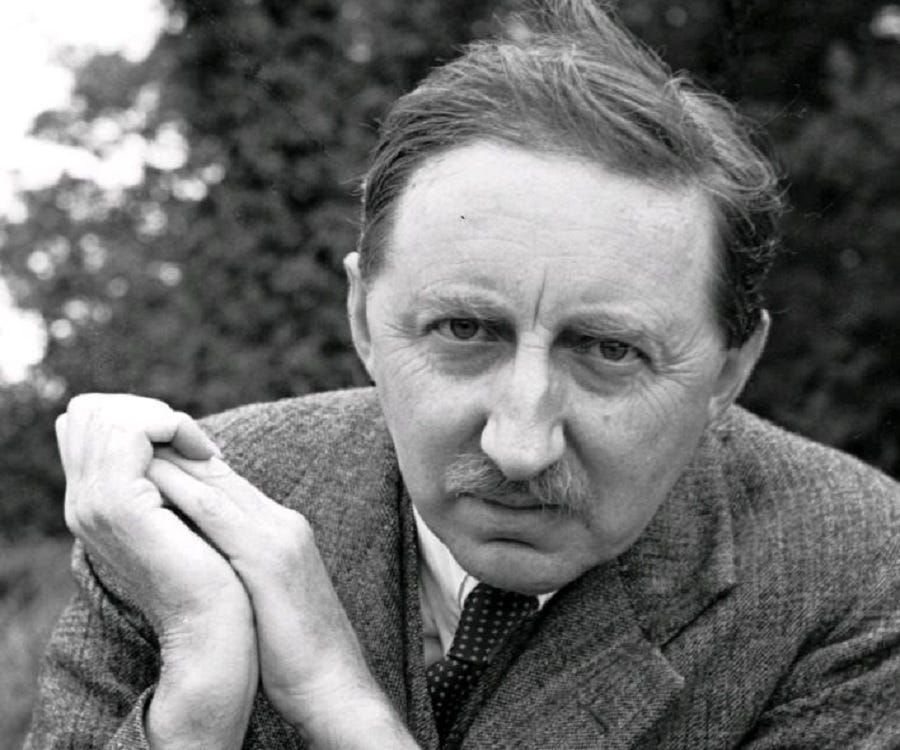E.M. Forster and How ‘The Machine Stops’ Predicts Our Digital Dystopia
E.M. Forster’s “The Machine Stops,” penned over a century ago, isn’t just a dystopian tale; it’s a vital, uncanny prophecy of our modern world’s addiction to technological mediation and its insidious fear of direct experience. Join me as we dissect this literary masterpiece and confront its urgent message for our hyperconnected, yet increasingly isolated, lives.
The Urgent Whisper from a Century Ago
We stand at a precipice, do we not? A future that once felt like science fiction has solidified into an undeniable reality. In 1909, E.M. Forster, a voice now imbued with moral authority and historical gravity, dared to imagine a world that few at the time could truly comprehend. His novella, “The Machine Stops,” is not merely a story; it is a terrifying prophecy, a blueprint of a society so utterly subsumed by technology that it has lost the very essence of its humanity. I believe it offers us a crucial lens through which to view our own digital age, urging us to recognize the invisible war for our reality that we are currently fighting.
Forster’s vision of underground dwellers, living lives mediated entirely by a vast, all-encompassing Machine, is chillingly familiar. Their communications are virtual, their knowledge curated, their experiences filtered. Direct contact is not just rare; it is considered barbaric, unpredictable, even dangerous. This isn’t just about gadgets; it’s about the erosion of authentic human interaction, the quiet surrender to convenience over profound connection. It asks us: Are we, too, becoming the inhabitants of Forster’s Machine, increasingly fearful of the very direct experiences that define our existence?
The Architect of Prophecy: E.M. Forster’s Enduring Insight
Edward Morgan Forster (1879–1970) was a novelist and essayist whose work consistently delved into the complexities of human connection and societal structures. His broader oeuvre, including “A Room with a View” and “Howards End,” explored themes of class disparity, cultural dissonance, and the intricacies of personal relationships. Yet, it is “The Machine Stops” that stands as his most strikingly prophetic work, a testament to his uncanny foresight regarding technology’s impact on society.
Forster’s intellectual depth was matched by an emotional fire, a profound conviction in the value of genuine human experience. His insights, born from an early 20th-century critique of modernity, now feel eerily contemporary, providing timeless wisdom for our present fractures. He wasn’t just observing the nascent industrial age; he was intuiting the deeper psychological shifts that reliance on machines would engender.
The Machine’s Embrace: A Dystopian Blueprint
In “The Machine Stops,” Forster paints a vivid picture of a world where technology promised ultimate convenience and delivered existential isolation. Humanity lives in individual cells, their every need met by the Machine. Ideas, music, conversations—all are transmitted via glowing plates. The narrative’s protagonist, Vashti, embodies this chilling acceptance, finding comfort in the mediated world and discomfort in the idea of face-to-face interaction or the raw unpredictability of nature. Her son, Kuno, however, represents the burgeoning antithesis: a longing for direct experience, for the natural world above ground, and for unmediated human connection.
Forster’s ‘The Machine Stops’ remains a powerful reminder of how readily we trade genuine human connection for the illusion of convenience, a trade that ultimately diminishes the richness of our lives.
– Emily Buchanan
The story’s genius lies in its nuanced portrayal of universal human weakness. It’s not just that technology exists, but that humans willingly succumb to its allure, prioritizing comfort and efficiency over the difficult, often messy, work of true human engagement. This willing conformity to a technologically mediated existence, a fear of freedom from the Machine, is the core of Forster’s urgent warning.
The Erosion of Embodiment: A Fear of Direct Experience
One of the most unsettling aspects of Forster’s prophecy is the society’s pervasive fear of direct experience and physical contact. Vashti recoils from the idea of touching her son, Kuno, finding it ‘barbaric’ and unpleasant. The very thought of public gatherings, the “clumsy business” of physical presence, has been abandoned. This is not merely a social quirk; it is an existential threat to our very being. When we become uncomfortable with the tangible, the corporeal, we risk losing our grounding in reality itself.
This theme resonates profoundly today. How often do we choose a video call over a shared meal, a text message over a heartfelt conversation? We have become, in many ways, Vashti’s descendants, mistaking constant digital connectivity for genuine human connection. The psychological alienation resulting from this overreliance on technology is a grave danger, subtly eroding our capacity for empathy and deep understanding, making us increasingly afraid of the messiness and vulnerability inherent in real-world interactions.
Technological Mediation: The Invisible Tyranny
Forster’s critique extends beyond simple technological dependence to the concept of technological mediation as a form of invisible tyranny. The Machine, while ostensibly serving humanity, gradually dictates its values, its norms, and ultimately, its decline. Communication becomes functional, devoid of nuance. Human expression is stripped bare by the interfaces. This gradual disintegration of direct human contact leads to a societal condition where even familial affection becomes a source of discomfort. The narrative demonstrates how convenience, when taken to its extreme, can become a cage.
The deeper tragedy of ‘The Machine Stops’ is not merely the machine’s eventual failure, but humanity’s prior failure to recognize their own enslavement and the spiritual atrophy it caused.
– Literary Critic, anonymized for context
I find this aspect particularly chilling because it mirrors our own anxieties about algorithms, social media, and artificial intelligence. We believe we control these tools, yet they subtly shape our perceptions, our values, and our very interactions, often without our conscious consent. It’s a war for our attention, our data, and ultimately, our autonomy, waged by the very conveniences we embrace.
“Only Connect!”: Forster’s Enduring Remedy
Against this backdrop of impending technological collapse, Forster offers a powerful counter-narrative, encapsulated in his famous imperative from “Howards End”: “Only connect!” This phrase, often seen as




